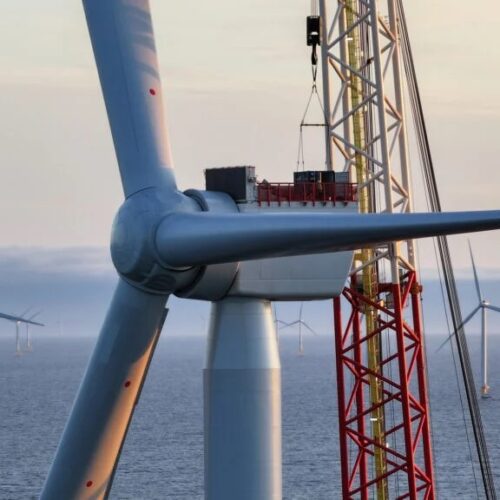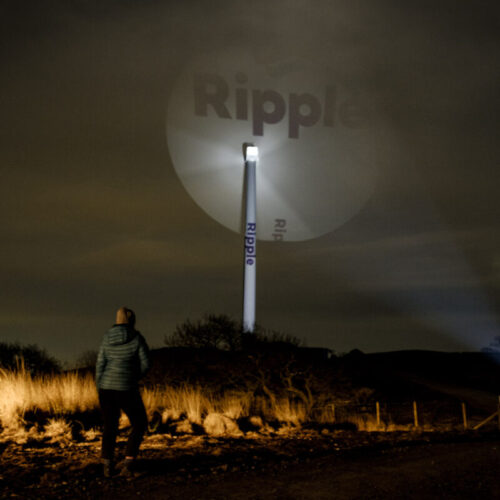Great British Energy, Labour’s answer to lower bills and cleaner energy, has been formally launched.
The founding statement set out that GB Energy will work collaboratively with industry, local authorities and communities, and other public sector organisations such as the National Wealth Fund, to “spread skilled jobs and investment across the country”.
Through its five key functions, it will speed up deployment of mature and new technologies, as well as local projects (this aided by Labour’s Local Power Plan).
The independent company will be chaired by Juergen Maier and funnel £8.2 million government funding into clean energy generation projects over the course of parliament. The government hopes its own investment will act as a “catalyst” for private investment – it hopes for a further £60 billion.
Maier said: “I’m excited to lead this company and work with the private sector and communities to rapidly expand skilled jobs and investment across the country.”
According to Labour, GB Energy will boost green skills through work with the Department for Energy Security and Net Zero, The Crown Estate, the National Wealth Fund and other parts of the public sector to deliver a comprehensive package of support for domestic clean energy supply chains.
General secretary of UK union Unite, Sharon Graham said: “If the government is going to invest £8.3 billion in green energy, and frankly it should be more, then creating real, good quality jobs must be right at the heart of it.”
More than an investment vehicle, after all
It has been clarified that Great British Energy is “not simply an investment vehicle” – it is a publicly-owned energy company that will take stakes in the projects it owns, manages and operates. This is contrary to previous statements made by the now-Prime Minister.
Pivotal in Labour’s messaging has been the energy cost savings that GB Energy will unlock. Keir Starmer again asserted that UK households stand to save £300 a month on their energy bills.
While state-owned energy will mean GB is less reliant on international markets, Ed Miliband qualified that billpayers will not see the effect until generation is underway. He said that savings will be seen within the lifespan of the current government.
The Conservative party are less than enthusiastic about the news. Writing on X (formerly Twitter), former secretary of state Claire Coutinho, said that “Labour’s plans for energy are going to mean huge costs for British families.”
Hearing the news, Greg Jackson, CEO of Octopus, a major UK energy supplier, said: “The starting gun has been fired.”
Mixed responses
The industry has been relatively positive about the GB Energy, praising Labour for the speed at which it has moved on climate policy. The special attention it has paid to community energy was noted by the founder and CEO of Ripple Energy, Sarah Merrick.
Ripple Energy enables customers to buy shares in a wind farm or solar park for direct access to their own source of renewable energy generation.
Merrick said: “If the ambitious target of clean power in the UK by 2030 is to be achieved, we need a community energy solution that can be delivered at scale and is fit for the digital age, as well as an end to the financial penalties such as unfair energy levies and tax on bill savings community energy can face.”
Chief executive officer at the Association for Decentralised Energy (ADE), Caroline Bragg, said: “The speed at which GB Energy has been set up is a positive sign for industry that Government understands the pace needed to deliver a net zero Britain and the role of decarbonisation in driving economic growth.”
One interesting element of GB Energy is the Great British Nuclear segment, which will see the publicly owned company work closely with the nuclear delivery body. Public funding used to subsidise nuclear power has raised some eyebrows.
Alethea Warrington, senior campaigner at climate charity Possible, called it “worrying”, suggesting that the focus should be on technologies that we know have the capability to deliver clean power – solar and wind.
The Green Party manifesto echoed the idea that efforts should be diverted away from nuclear until more progress has been made towards net zero. Current± has approached them for comment.
Focus on offshore wind
In a push for offshore wind generation, the GB Energy launch coincided with the announcement of a partnership between the energy company and the Crown Estate – “two national institutions for the benefit of the British people”.
The Crown Estate has a £16 billion portfolio of UK land and seabed. The partnership will enable the Crown Estate to achieve 20-30GW of new offshore wind developments reaching seabed lease stage by 2030 – a target it already had.
Miliband said: “The agreement with The Crown Estate will lead to more investment, cleaner power, more energy security, and is a statement of intent that it will be a permanent and transformative institution for our country.”






